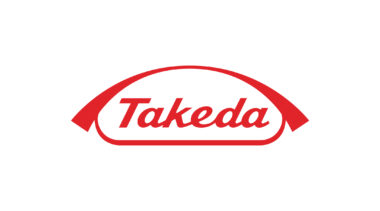Pregnant women can be reassured that quit-smoking medicines such as nicotine patches and varenicline do not increase the risk of major birth defects in babies, according to new research from the National Drug and Alcohol Research Centre (NDARC), UNSW Sydney.
The real-world data, published in JAMA Internal Medicine, suggest there is no evidence that infants exposed to these medicines had higher rates of major congenital malformations.
“Considering the devastating consequences of smoking on both mother and baby, our results should reassure pregnant women who need help quitting smoking,” said Dr Duong Tran, an NDARC Research Fellow and first author of the study.
“These findings are also helpful for healthcare providers when discussing the benefits and risks of smoking cessation therapies with patients and better support women to make informed choices about quitting during pregnancy.”
There are currently three quit-smoking medicines available through the Pharmaceutical Benefits Scheme – nicotine replacement therapy (NRT), varenicline, and bupropion – that are known to be safe and effective in the general population.
However, the lack of clear evidence for their safety in pregnancy means that many clinical guidelines for pregnancy have recommended caution when using NRT and advised against varenicline and bupropion.
In their large multinational study, Dr Tran and colleagues analysed data from 5.2 million births in Australia (NSW), New Zealand, Norway and Sweden between 2001 and 2020.
They narrowed it down to more than 13,000 newborns – of whom 9300 were exposed to NRT, 3000 to varenicline, and 1000 to bupropion – and compared their risk of birth defects to those born to women smoking in early pregnancy but did not use these quit-smoking tools.
Overall, they found no evidence of an increased risk of major birth defects of any type among babies born to women who used these medicines compared to those whose women smoked in early pregnancy but did not use these therapies.
The researchers also reported no increased risk of defects affecting the heart, limbs, genital organs, kidneys and urinary tract, respiratory system, digestive systems, or facial and lip clefts with exposure to NRT.
Similarly, there was no difference in the rate of defects in the heart, limbs, genital organs or kidneys found in infants exposed to varenicline.
However, as the number of women using bupropion during pregnancy was too small to make a definitive finding, the authors recommend further research with a larger group to assess its potential impacts on specific malformations.
“Our study is the largest of its kind to date and provides high-quality evidence on the safety of quit-smoking medications in pregnancy, thanks to the international collaboration and innovative analysis of routinely collected data,” Dr Tran said.
“Pregnant women are typically excluded from clinical trials due to medico-legal, ethical and other reasons; hence, observational studies like ours are essential to filling in the knowledge gaps and for guiding healthcare decisions.”
Associate Professor Alys Havard, NDARC Deputy Director and study principal investigator, said the findings had broader implications.
“Beyond individual patient care, this research could be used to refine clinical guidelines and policies on managing smoking during pregnancy, and prescribing quit smoking medications for expectant mothers,” Professor Havard said.
The real-world study is the largest of its kind to date, but the authors cautioned they were unable to examine the risk of long-term functional concerns such as neurodevelopment disorders.
-ENDS-
Contact details:
Media contact: 0401 713 850 | [email protected]
For reference: When reporting on drugs and alcohol, we encourage consultation of the Mindframe guidelines on ‘Communicating about alcohol and other drugs’ and ‘Communicating about suicide’, and the ‘Language Matters’ guide published by the NSW Users and AIDS Association.
We also encourage inclusion of the following helpline information in all reporting:
People can access free and confidential advice about alcohol and other drugs by calling the National Alcohol and Other Drug Hotline on 1800 250 015.


